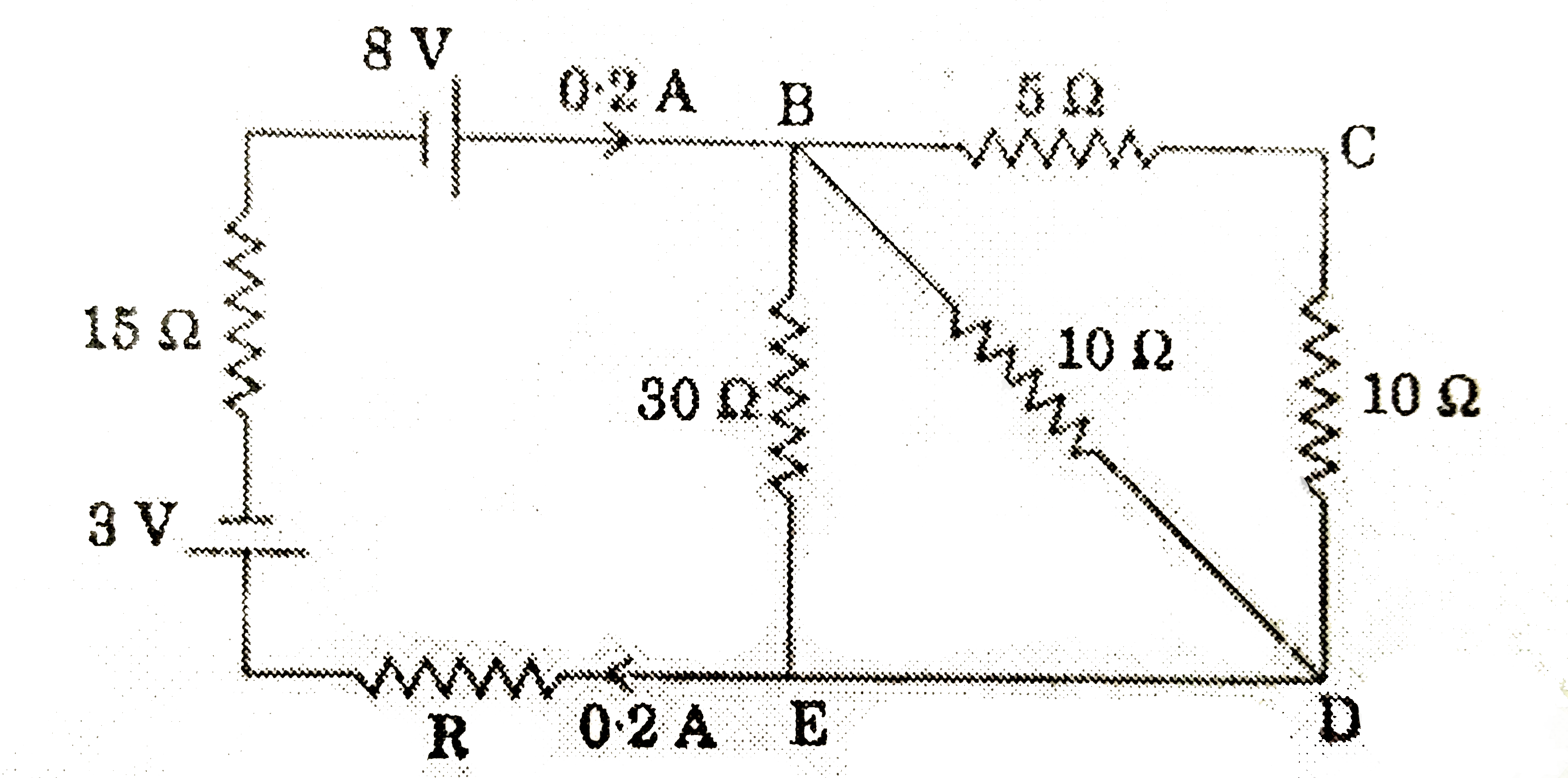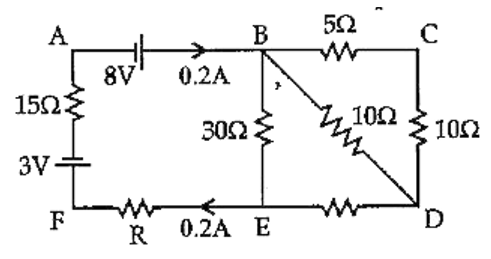The value of resistance is 10.845Ω and the current is 3.23A . On multiplying them , we get the potential difference in terms of significant figures?
To find the potential difference using the given values of resistance and current, we will follow these steps:
Step 1: Identify the values
We have:
- Resistance (R) = 10.845 Ω
- Current (I) = 3.23 A
Step 2: Use Ohm's Law
According to Ohm's Law, the potential difference (V) can be calculated using the formula:
V=I×R
Step 3: Substitute the values
Now, we substitute the values of current and resistance into the equation:
V=3.23A×10.845Ω
Step 4: Perform the multiplication
Calculating the multiplication:
V=3.23×10.845=35.02935V
Step 5: Determine significant figures
Now, we need to express this result in terms of significant figures. The number of significant figures in a measurement is determined by the least precise measurement:
- The resistance (10.845 Ω) has 5 significant figures.
- The current (3.23 A) has 3 significant figures.
Step 6: Round the result
Since the current has the least number of significant figures (3), we will round our result (35.02935 V) to 3 significant figures:
- The first three significant figures of 35.02935 are 35.0 (the next digit is a 2, which does not round up).
Thus, the potential difference in terms of significant figures is:
V=35.0V
Final Answer
The potential difference is 35.0 V.
---
We have:
- Resistance (R) = 10.845 Ω
- Current (I) = 3.23 A
According to Ohm's Law, the potential difference (V) can be calculated using the formula:
V=I×R
Now, we substitute the values of current and resistance into the equation:
V=3.23A×10.845Ω
Calculating the multiplication:
V=3.23×10.845=35.02935V
Now, we need to express this result in terms of significant figures. The number of significant figures in a measurement is determined by the least precise measurement:
- The resistance (10.845 Ω) has 5 significant figures.
- The current (3.23 A) has 3 significant figures.
Since the current has the least number of significant figures (3), we will round our result (35.02935 V) to 3 significant figures:
- The first three significant figures of 35.02935 are 35.0 (the next digit is a 2, which does not round up).
V=35.0V
The potential difference is 35.0 V.
Topper's Solved these Questions
- DIMENSIONS & MEASUREMENTBOOK - CENGAGE PHYSICS ENGLISHCHAPTER - DIMENSIONS & MEASUREMENTEXERCISE - Subjective
31 Videos
- DIMENSIONS & MEASUREMENTBOOK - CENGAGE PHYSICS ENGLISHCHAPTER - DIMENSIONS & MEASUREMENTEXERCISE - Single Correct
93 Videos
- DIMENSIONS & MEASUREMENTBOOK - CENGAGE PHYSICS ENGLISHCHAPTER - DIMENSIONS & MEASUREMENTEXERCISE - Exercise 1.2
6 Videos
- CENTRE OF MASSBOOK - CENGAGE PHYSICS ENGLISHCHAPTER - CENTRE OF MASSEXERCISE - INTEGER_TYPE
1 Videos
- FLUID MECHANICSBOOK - CENGAGE PHYSICS ENGLISHCHAPTER - FLUID MECHANICSEXERCISE - INTEGER_TYPE
1 Videos
Similar Questions
If the value of resistance is 10.845Ω and the value of current is 3.23A , the potential difference is 35.02935V. Find its value in significant number.
View SolutionIf the value of resistance is 10.845 ohm and the value of current is 3.23 amp, the value of potential with significant numbers would be
View Solution
Knowledge Check
The value of resistance is 10.845Ω and the urrent is 3.23Ã…. On multiplying, we get the potential difference is 35.02935 V. the value of potential difference in terms of significant figures would be
A35VB35.0VC35.029 VD35.03 V
An electric bulb of resistance 500Ω, draws a current of 0.4 A. Calculate the power of the bulb and the potential difference at its end.
View SolutionA battery of emf 2.0V and internal resistance 0.10Ω is being charged with a current of 5.0A. Find the potential difference between the terminals of the battery?
View SolutionA current 0.2A flows in a wire of resistance 15Ω. Find the potential difference across the ends of the wire.
View SolutionCalculate the value of the resistance R in the circuit shown in the figure so that the current in the circuit is 0.2 A. What would be the potential difference between points B and E?

View SolutionCalculate the value of resistance R in the circuit shown in the figure so that the current in the circuits is 0.2A. What would be the potential difference between the points B and E ?

View SolutionThe potential difference across the terminals of a battery is 10 V when there is a current of 3 A in the battery from the negative to the positive terminal. When the current is 2A in the reverse direction, the potential difference becomes 15 V. The internal resistance of the battery is
View SolutionA car battery of emf 12V and internal resistance 0.05ω receives a current of 60 A from an external source, then the terminal potential difference of the battery is
View Solution
